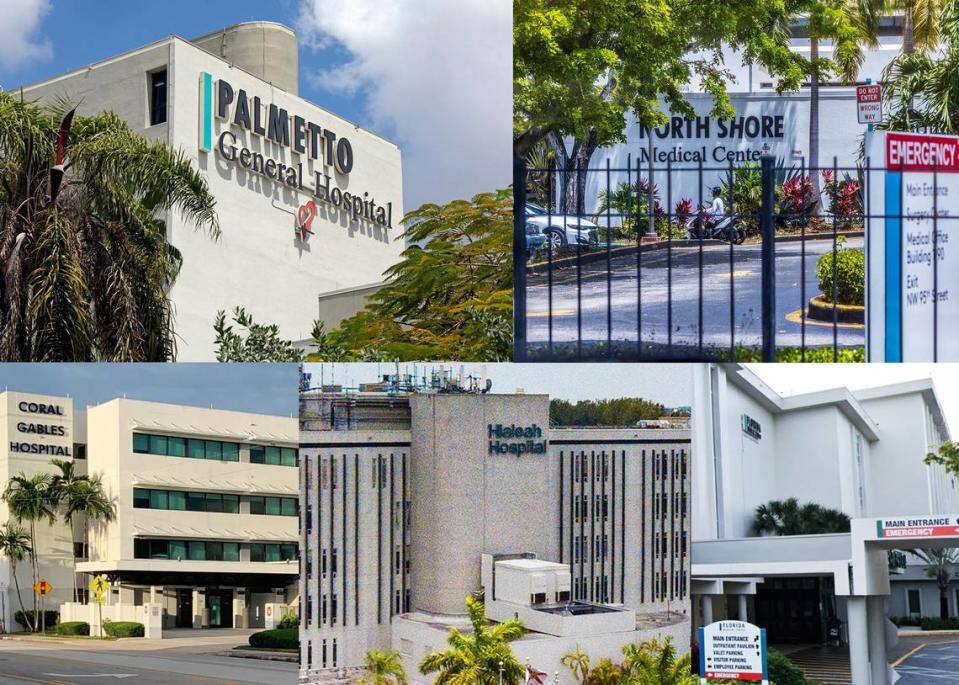Who’s watching over the bankruptcy of a big healthcare firm that runs Miami hospitals?

A South Florida healthcare staffing agency and one of the state’s largest healthcare unions will help oversee the bankruptcy of Steward Health Care System.
Cross Country Healthcare, a Boca Raton staffing agency that employs travel nurses, and 1199SEIU United Healthcare Workers East, a union that represents healthcare workers across the country, were tapped to be part of a group that will act as watchdogs over the bankruptcy process.
The committee, made up of nine “unsecured” creditors that Steward owes money, will review and investigate company finances and help draw up the healthcare firm’s reshuffling plans. Those plans will include Steward’s intention to sell all 31 of its hospitals, including eight in Florida.
In court, the group will also represent hundreds of creditors, including Florida’s Agency for Health Care Administration, who are waiting to get paid by Steward for provided loans, supplies and services.
READ MORE: A healthcare giant owes millions to Florida taxpayers. Will the state see the money?
Committee members were appointed by the U.S. Trustee Program, which is the arm of the U.S. Department of Justice that oversees the administration of bankruptcy cases.
“We appreciate that the U.S. Trustee recognizes the enormous stake that front-line caregivers have in this process,” Roxey Nelson, executive vice president of the union’s Florida chapter, said in a statement. “It is critical that these employees have a seat at the table and that their crucial expertise is considered as important decisions are being made about the future of Steward Healthcare throughout these bankruptcy proceedings.”
How will Steward Health’s bankruptcy process work?
Steward, the largest physician-owned healthcare network in the country, filed for bankruptcy protection on May 6. The company’s hospitals, including North Shore and Palmetto General in South Florida, remain open.
The healthcare system owes billions in loans, long-term leases, unpaid vendor and supply bills, and unpaid employee wages and benefits. The organizations appointed to the unsecured creditors committee — along with the hundreds of creditors they represent — are all owed money by Steward. And they’re at risk of not getting all, if any, money back from the healthcare giant.
READ NEXT:Why a healthcare giant has slowed care at a Miami hospital, and where it leaves patients
That’s because Steward owes them money for “unsecured claims.” Think of it like credit card debt. Because the debt is not tied to any properties or other company assets, it’s often not prioritized in court.
Committee members Philips North America and Boca Raton’s Cross Country Healthcare, for example, are owed millions for unpaid supplies or services and are listed in court records as being in the top 30 list of creditors with “unsecured claims.”
However, creditors with secured claims — or loans tied to a property or other company asset — often have higher priority during bankruptcy proceedings and are usually paid in full, according to Scott Norberg, a law professor at Florida International University. Once Steward pays off operating expenses and creditors with secured claims, any leftover money will then be distributed among creditors with unsecured claims, he said.
Creditors with unsecured claims are often paid “cents on the dollar,” depending on what is negotiated in court, Norberg said. That means they likely won’t recoup all the money owed.
The unsecured creditors committee’s goal is to try and get the best deal possible for all the parties involved.
And while it’s possible some of the more than 100,000 creditors Steward owes money to won’t get paid in full, there is good news for Steward’s employees. Employee wage and benefit claims are usually considered a priority in court.

 Yahoo Finance
Yahoo Finance 